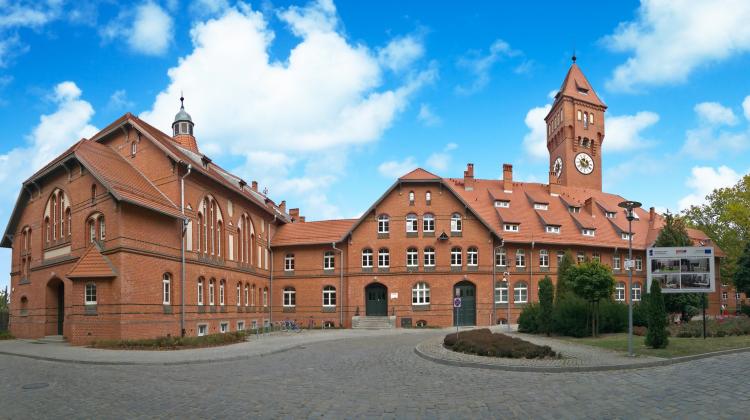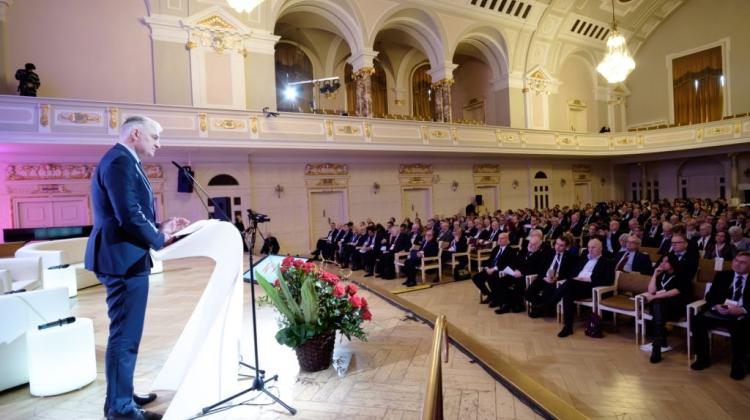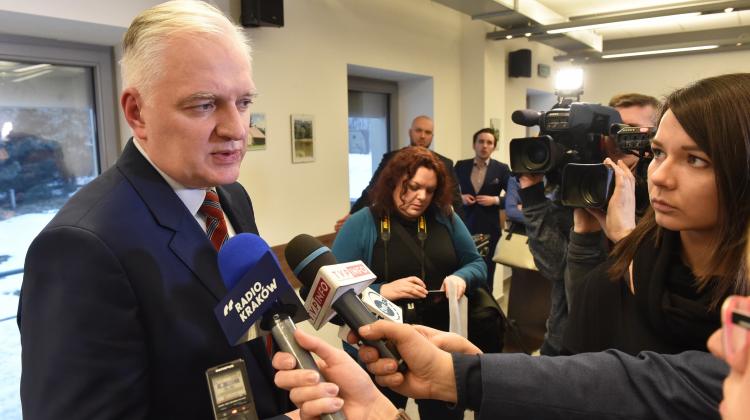Poland closer to the international biobanking consortium

Poland is getting closer to joining the Biobanking and Biomolecular Resources Research Infrastructure (BBMRI-ERIC). The letter with a request in this regard has been signed by the Minister of Science Jarosław Gowin, now pending the approval of the BBMRI-ERIC assembly. Membership will increase the competitiveness of Polish scientists and research in the biomedical sciences.
BBMRI-ERIC (Biobanking and Biomolecular Resources Research Infrastructure - European Research Infrastructure Consortium) is an organization of more than 225 institutions and research institutes - mainly biobanks - from 30 countries.
At the end of June the Council of Ministers adopted the decision on the Polish accession to the Consortium. At the end of July the Minister of Science Jarosław Gowin signed a letter to the BBMRI-ERIC Director General in which he made an official request for the Polish membership in the Consortium for the next five years. The request must still be approved by the Assembly of Members of BBMRI-ERIC.
"Accession and Polish participation in BBMRI-ERIC will contribute to the strengthening of scientific excellence and effectiveness of Polish research in the biomedical sciences. For Polish scientists, full membership in BBMRI-ERIC is a guarantee of access to multi-centre research infrastructure, including the resources of partner biobanks, as well as an important step towards increasing the competitiveness of the Polish research and industrial R&D in Europe and internationally" - explained the press office of the Ministry of Science and Higher Education. " Poland\'s full in BBMRI-ERIC will also be part of the implementation of the Plan for Responsible Development by creating conditions for the development of innovative entrepreneurship" - reads the Ministry of Science release.
According to the Ministry of Science, Poland has formally participated in the work of BBMRI-ERIC as an observer since 2013. "This status allows to track the work undertaken in the arena of the member states in this respect, it does not, however, allow to participate in making decisions about the strategy of development of biomedical sciences in Europe, which is undoubtedly the ambition of representatives of the Polish scientific community. In view of the plans to intensify cooperation with BBMRI-ERIC, which requires its members to create a national network of biobanks that comply with the commonly agreed standards, the consortium BBMRI.PL was created in Poland in December 2014"- reminded the Ministry of Science.
With the signing of the letter by the Minister Gowin, the Wrocław Research Centre EIT+ Biobank received a National Leading Centre nomination and its director Dr. Łukasz Kozera was nominated for the National Coordinator. The group of seven partners from Poland includes: Central Bank of Frozen Tissues and Genetic Specimens at the Department of Medical Laboratory Diagnostics of the Medical University of Gdańsk; Tissue Engineering Lab at the Department of Histology and Embryology of the Medical University of Warsaw; Biobank Lab at the Department of Molecular Biophysics, Faculty of Biology and Environmental Protection of the University of Lodz; Medical University of Lublin; Wroclaw Medical University and the Regional Science-Technology Centre in Chęciny near Kielce.
"Poland will finally cease to be a grey area on the map of European biobanks and become an equivalent partner. The potential of our research centres is enormous and will certainly be noticed by other scientific partners, as well as pharmaceutical companies" - said Dr. Łukasz Kozera.
"Biobanks can be defined as collections of samples of human biological material" - explained Dr. Kozera. "By biological material I mean blood, blood-like products, tissues, including cancer tissue, saliva and others. Biobanks are places where patients can give, and scientists retrieve biological material for scientific research, which is why their functioning is of particular importance for the sector research and innovation, which in this area is still largely dependent on the selected and well-characterized biological material. It is also the way to personalized medicine that is so important to everyone" - he said.
Dr. Kozera emphasizes that participation in BBMRI-ERIC entails many other positive consequences. "In the project solutions will be developed, which will result in the implementation of uniform standards for biobanking across the European Union" - he noted. "It is mainly about collecting and processing biological material, collecting and processing data and making them available to other units, which is important for at least two reasons. Firstly, it translates to quality and reliability of research conducted with the use of human biological material. Secondly, it increases the opportunities for cooperation with industry, which requires scientific partners to apply certain procedures and have appropriate accreditation" - explained Dr. Kozera.
EIT+ representatives emphasized that potential economic benefits are an extremely important opportunity associated with Polish participation in the consortium. "There already is an interest in cooperation with Polish biobanks from the domestic industry, which every year spends considerable resources on clinical trials of various products in other European countries. The reason why this money is not spent in Poland is the lack of a national network of biobanks , functioning in accordance with internationally recognized principles and procedures. According to available estimates, in this context it is more than 100 million zlotys per year, which the Polish pharmaceutical companies spend on preclinical studies in other EU countries. These studies concern primarily new drugs and new substances that serve better diagnosis" - reads the release sent by EIT+.
Potential customers of biobanks in Poland will include: research units, pharmaceutical and biotech companies, hospitals, which will be able to obtain well characterized biological material for research. Personalized medicine, however, is only one of the areas in which the accumulation of biological material is a necessity and a guarantee of development. Other research areas, where development will only be possible with access to a large collection of human biological material, include research on rare and incurable diseases and advanced environmental research, such as research into the effects of toxins.
PAP - Science and Scholarship in Poland
ekr/ agt/ mrt/
tr. RL
Przed dodaniem komentarza prosimy o zapoznanie z Regulaminem forum serwisu Nauka w Polsce.


















